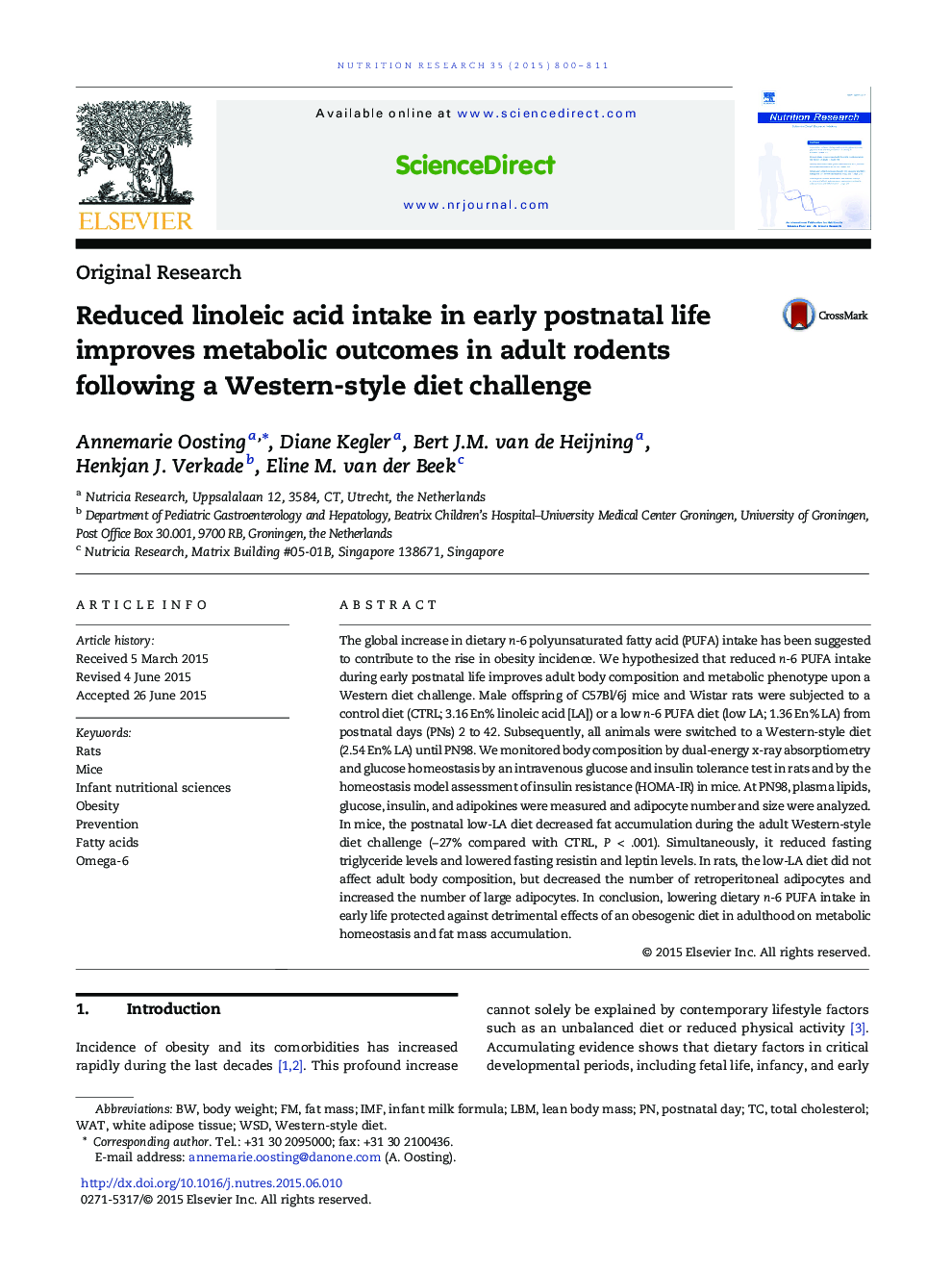| Article ID | Journal | Published Year | Pages | File Type |
|---|---|---|---|---|
| 5904423 | Nutrition Research | 2015 | 12 Pages |
Abstract
The global increase in dietary n-6 polyunsaturated fatty acid (PUFA) intake has been suggested to contribute to the rise in obesity incidence. We hypothesized that reduced n-6 PUFA intake during early postnatal life improves adult body composition and metabolic phenotype upon a Western diet challenge. Male offspring of C57Bl/6j mice and Wistar rats were subjected to a control diet (CTRL; 3.16 En% linoleic acid [LA]) or a low n-6 PUFA diet (low LA; 1.36 En% LA) from postnatal days (PNs) 2 to 42. Subsequently, all animals were switched to a Western-style diet (2.54 En% LA) until PN98. We monitored body composition by dual-energy x-ray absorptiometry and glucose homeostasis by an intravenous glucose and insulin tolerance test in rats and by the homeostasis model assessment of insulin resistance (HOMA-IR) in mice. At PN98, plasma lipids, glucose, insulin, and adipokines were measured and adipocyte number and size were analyzed. In mice, the postnatal low-LA diet decreased fat accumulation during the adult Western-style diet challenge (â27% compared with CTRL, P < .001). Simultaneously, it reduced fasting triglyceride levels and lowered fasting resistin and leptin levels. In rats, the low-LA diet did not affect adult body composition, but decreased the number of retroperitoneal adipocytes and increased the number of large adipocytes. In conclusion, lowering dietary n-6 PUFA intake in early life protected against detrimental effects of an obesogenic diet in adulthood on metabolic homeostasis and fat mass accumulation.
Keywords
Related Topics
Life Sciences
Biochemistry, Genetics and Molecular Biology
Endocrinology
Authors
Annemarie Oosting, Diane Kegler, Bert J.M. van de Heijning, Henkjan J. Verkade, Eline M. van der Beek,
